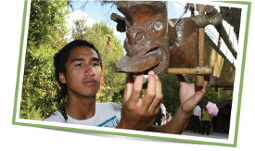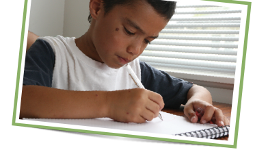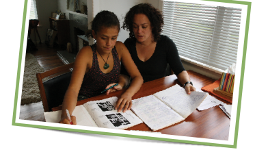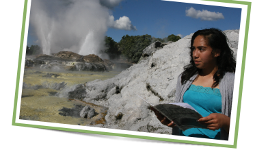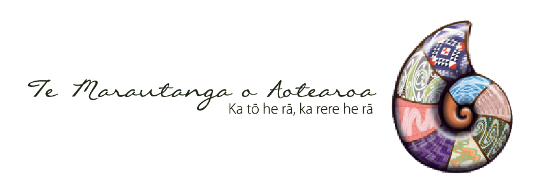| Initiative title | He Puawai Harakeke: Pāngarau me te Reo Matatini |
| Marau area the initiative will support |
Pāngarau, Tuhituhi, Kōrero, Pānui |
| Where is the initiative being trialled? | Northern region: Tāmaki Makaurau and Taitokerau |
| Initiative Description | This initiative focuses on accelerating learning in pāngarau and te reo Matatini with students who are underachieveing in one or more of the above. He Puawai Harakeke is offered to Māori-medium kura and classrooms in 2 models a) a facilitator working directly with students and b) facilitator supporting a lead teacher to implement the programme. Programme (a) involves a specialist facilitator working with students, their teachers and whānau. Teachers identify the students who will participate in the programme. The facilitator will also carry out assessments to identify the areas that need addressing (i.e., hot spots). Student progress is carefully monitored with regular reports provided to kaiako and whānau. Students are provided with I-Pads for the duration of the programme to support their learning. They present what they have learnt to whānau and peers at the end of the programme. We have found students are more positively engaged and find this mode of learning non- threatening. Student and whānau responses have been very positive with good achievement gains made by students. |
| Timeframe requirements | Releasing students for an hour a day for 3-4 days a week and/or releasing Lead teacher. |
| Resource requirements (teacher, kura and time commitment) | Students released for 10-15 weeks, 1 hour per day x 3-4 days per week. Wifi connection. White board and space to work with students. |
| Provider contact details | Tony Trinick Te Puna Wānanga Faculty of Education (09) 623 8905 |
Programme For Students
The Ministry of Education provides a list of the Programmes for Students for 2015.
He Puawai Harakeke: Pāngarau me te Reo Matatini - Te Whare Wānanga o Tāmaki Makaurau
Ki te Angitutanga - CORE Education
| Initiative title | Ki te Angitutanga |
| Marau area the initiative will support | Kōrero |
| Where is the initiative being trialled? | TKKM o Tuia te Matangi, Nelson Central School, Victory Primary School and Parklands School (Motueka) |
| Initiative description | Ki te Angitutanga is an intervention programme designed to support schools in raising the achievement of students who are not making expected progress in Te Reo Matatini in relation to Ngā Whanaketanga Rūmaki Māori. There is a specific focus on Te reo ā-waha. Identified students will work one to one and in small groups with our Ki te Angitutanga facilitator to improve competence and confidence to speak te reo Māori through the use of mobile devices and apps that promote language output (speaking) and integrating aspects of the ‘Me whita kia whita’ gestural language teaching strategy. |
| Timeframe requirements | Our facilitator will have regular contact with students aiming for 8-10 visits per term. |
| Resource requirements (teacher, kura and time commitment) | Our facilitator works with @ 6 students in each setting. A separate, quiet learning space is required for delivery of the programme. |
| Provider contact details | Faciitator Tahu Paki – CORE Education 021 722 698 Project Manager – Deanne Thomas – CORE Education 027 2447327 |
Te Ipu Kōrero - Haemata Limited
| Initiative title | Te Ipu Kōrero |
| Marau area the initiative will support | Kōrero |
| Where is the initiative being trialled? | Nationally. Priority on trialling in kura we are currently supporting through PLD, and kura that are committed to raising the oral language level of the children identified at Manawa Taki for Kōrero. |
| Initiative description | Currently in design phase, Te Ipu Kōrero will be trialled from Term 1, 2015. Te Ipu Kōrero is an oral language programme:
Te Ipu Kōrero seeks to raise and accelerate student achievement by:
|
| Timeframe requirements | Complete design phase by February 2015 Recruit kura and begin trial/implementation term 1, 2015. |
| Resource requirements (teacher, kura and time commitment) | Approximately 4 contacts per term (development team meetings, school visits, online discussions/conference calls) Leaders are required to support the participating kaiako. Kaiako participating in the trial will become part of the development team and are asked to attend team meetings each term (1-2 days/term) to provide feedback (what’s working and what continues to be a challenge). Haemata facilitators will also visit each kura at least once per term to observe and gather data. Online discussions (eg hangouts, or conference calls) as required. |
| Provider contact details | Haemata Limited PO Box 603 Whakatāne PH 07 308 6322 |
Mauri Oho - Kia Ata Mai Educational Trust
| Initiative title | Mauri Oho |
| Marau area the initiative will support | Pāngarau, Tuhituhi, Kōrero, Pānui |
| Where is the initiative being trialled? | 6oKura: TKKM o Rangiawhia, Newton Central School, TKKM o Bernard Fergusson, TKKM o Manawatū, Te Kura ā-Iwi o Whakatupuranga Rua Mano, Te Whatatau o Putauaki |
| Initiative description | Mauri Oho is an online tool that enables kaiako to design personalised tasks and programmes in te reo matatini and pāngarau. Mauri Oho tasks are intended to stimulate higher order thinking and ākonga self-management in a highly motivating digital environment. Tasks are created by the Mauri Oho system based on specified learning goals and ākonga learning preferences, and then personalised collaboratively by kaiako and ākonga to align with their interests and passions. A key aspect of Mauri Oho is the involvement of whānau from start to finish. Mauri Oho tasks are matched to apps on iPad/Tablet for the ākonga to complete. Mauri Oho is in beta trial until the end of term 1, 2015 after which a full version is expected to be rolled out to a wider group of kura. |
| Timeframe requirements | The initial expectation is that each Mauri Oho experience will occur over a 6-8 week period. |
| Resource requirements (teacher, kura and time commitment) | The kura must have a reliable internet connection and access to iPads or tablets for all participants. It is recommended that for the period of the intervention, each ākonga have dedicated use of an iPad/tablet. Mauri Oho is best suited for use in akomanga where the kaiako is at least willing to engage in learning in digital environments. The success of Mauri Oho is in the collaboration of all participants from ākonga and their whānau through to kaiako and tumuaki with the primary focus on the total well-being of the ākonga. |
| Provider contact details | Kia Ata Mai Educational Trust Cath Rau |
Mauri tū, mauri ora! - Kōtare Enterprises Ltd
| Initiative title | Mauri tū, mauri ora! |
| Marau area the initiative will support | Kōrero (primary focus), Tuhituhi (secondary), Pānui (secondary) |
| Where is the initiative being trialled? | In three Tai Tokerau, Māori medium immersion level 1 kura, being two kura kaupapa Māori and one kura ā-iwi. |
| Initiative description | 1 - The PfS programme Mauri Tū, Mauri ora is a Ministry targeted initiative to support priority year 1 – 8 ākonga at Kōrero Manawa Taki so that their Kōrero learning and achievement can be accelerated. 2 - The broad outcomes of the PfS programme that have benefit for the kura are:
3 - The unique culture of each kura is reflected in the differing levels of progress achieved over the past three school terms. 4 - One kura has successfully embedded practice and begun to action deliberate interventions that accelerate learning for ākonga assessed at Manawa Taki. All three kura are grappling with efforts to consistently implement effective systems and processes throughout the year 1 – 8 sector, and Te Waharoa Ararau ā-Kura achievement data is not yet readily available. 5 - Despite that, all three kura fully appreciate the student-based benefits to be derived from the PfS programme and will continue with the initiative in 2015 with their preferred Kōtare provider. |
| Timeframe requirements | Essential one year, ideal two years |
| Resource requirements (teacher, kura and time commitment) | Minimum one day release per school term for the designated PfS lead teacher as well as time during the in-kura visits to discuss positives, concerns, and action plans relating to the PfS programme with the tumuaki as the professional leader of the kura. |
| Provider contact details | Evelyn M Tobin, MNZM, JP Director, Kōtare Enterprises Ltd P: 021 156 3371 |
Mauri Tū Mauri Ora - Te Tapuwae o Rēhua
| Initiative title | Mauri Tū Mauri Ora |
| Marau area the initiative will support | Pāngarau, Tuhituhi, Kōrero, Pānui |
| Where is the initiative being trialled? | Pāngarau 1 school in Whakatū and 1 Otautahi Te Reo Matatini Ōtautahi 2 kura |
| Initiative description | Phase One: The Process
Phase Two: Te Mahi
The analysis of the data gathered, coupled with the recommendation of kaiako and facilitator will inform the implementation of the programme alongside whanau engagement. Mauri Tū, Mauri Ora Kaiako will be supported through a series of workshops, individual hui and modelling by the facilitator. Workshops will consist of set up hui, on-going mentoring, planning. Inquiry for kaiako and facilitator to support programme Phase Three : Evaluation of the Programme The sharing of professional learning in these various forums will add important and pertinent information for the on-going evaluation and monitoring of this programme The intention of Māori Medium PfS is to work closely with ākonga however, we believe that it is essential to design teaching and learning programmes that will both accelerate the learning and achievement for ākonga and include manageable and sustainable practices for kaiako and/or support staff. |
| Timeframe requirements | Pāngarau (trialling 1 term per cohort of ākonga or until satisfactory progress is made) Te Reo Matatini (trialling a cohort of ākonga until satisfactory progress) |
| Resource requirements (teacher, kura and time commitment) | Kaiako with strength in Pāngarau/1 term commitment/whānau engagement Pāngarau: 4 hours for kaiako and 2 hours with facilitator visiting each school each week. Kaiako with strength in Te Reo Matatini/3 to 4 hrs per week commitment/whānau engagement |
| Provider contact details | Raewyn Himona (Pāngarau) Ally O’Keefe (Te Reo Matatini) |
Kia Kōrerotia te Reo - Te Whare Wānanga o Te Ūpoko o Te Ika ā-Māui
| Initiative title | Kia Kōrerotia te Reo |
| Marau area the initiative will support | Kōrero |
| Where is the initiative being trialled? | Presently the schools engaged with the Victoria University of Wellington (VUW) model are:
|
| Initiative description | The VUW methodology and approach to PFS implementation has been to develop and modify three platform strategies. These strategies will be tested and analysed to determine a ‘best practice VUW approach’ to targeting language proficiency gains for ākonga who have been identified as Manawa āki and Manawa taki. Strategy 1 Papa Whakakōrero Papa Whakakōrero is a Māori language resource that is visual, kinesthetic and repetitive, and uses the main skills of whakarongo, titiro, and kōrero to learn the language. The methodology used involves role modeling language structures that learners repeat and build up confidence their confidence to speak te reo Māori. Strategy 2 Blended Approach Through the use of mobile devices and face to face support, students are led through a series of organised language modules developed to enhace the opportunity for language engagement. Strategy 3 Te Mahi Rākau Mahi rākau is a method that is visual, kinesthetic and repetitive, and uses the main skills of whakarongo, titiro, and kōrero to learn the language. The learning is reinforced using kēmu, ngohe and waiata, as well as digital Apps. |
| Timeframe requirements | The present programme is a trial with a set number of students from the target group for 4 Terms. The facilitator contact is either weekly or fortnightly (negotiated with Provider and Kura). |
| Resource requirements (teacher, kura and time commitment) | Kura: Release for Kaiako to observe facilitator once a month for the duration of trial. Kaiako: Time made available to unpack the teaching and learning with the facilitator (aligned to facilitator visits). Once a month observation of facilitator. NB. The facilitator will provide all resources needed for the trial programme. |
| Provider contact details | Rawiri Toia Project Director Victoria University of Wellington 027 563 9741 |
